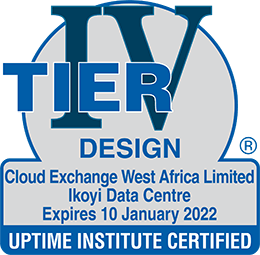West Africa's CloudExchange Rapidly Transforms into a Leading ISP with Huawei
The most populous country in Africa, Nigeria has maintained steady economic growth over the past two decades: today, it stands as the largest economy on the continent. Unsurprisingly, Nigeria also has the highest number of African Internet users, some 90 million or more, the tenth highest national figure in the world. Indeed, the Information and Communications Technology (ICT) industry is one of the main drivers of Nigeria's robust economic growth, supporting the rapid development of a range of industries from e-commerce to online banking and digital government.
This rapidly growing digital economy has also driven the development of data center infrastructure. According to Xalam research, Internet Data Center (IDC) capacity in Sub-Saharan Africa (SSA) was recorded at 230 MW in 2020, with an average annual growth rate of 30% over five consecutive years. And capacity is expected to balloon to anywhere between 350–450 MW by 2024. It’s this impressive potential that has attracted enterprises to invest in IDCs and build large-scale data centers in Nigeria. To take just one example, RackCentre — a data center operator — announced in 2020 an investment of US$100 million, adding 13 MW capacity to its existing Nigerian data center setup. Another established Colocation (Colo) company, 21CTL, also announced the construction of a new 36 MW data center as part of its ambitious expansion plans.

Recognizing enormous market potential here, CloudExchange — a leading system integrator in West Africa and also a provider of end-to-end Information Technology (IT) system solutions — made plans to enter the IDC market. CloudExchange has extensive experience in consulting, IT integration, and software services, and the company's strength lies in its expertise in providing complete and convenient solutions for end-users. As a new IDC entrant, however, CloudExchange needed to find a way to differentiate itself, to establish a foothold in a fiercely competitive environment. And to set itself apart, the company decided to partner with Huawei, in order to be able to offer superior IDC services, faster response times to requirements, more flexible capacity expansion, and more reliable data centers overall.
It takes roughly one and a half to two years to build a traditional data center in Nigeria — far too slow to keep up with the rapid growth of IDC services. To accelerate the process, CloudExchange chose a Huawei prefabricated modular data center solution: with most devices pre-installed and pre-tested in the factory, the data center simply has to be hoisted onsite. As a result, the construction period of the entire project was reduced to just seven months, meeting CloudExchange's need for accelerated deployment without compromising quality nor impact the convenience of services that end-users receive.
In a traditional data center, several buildings are constructed to form a data center campus. This means a high initial investment, a low initial load rate, and high overall energy consumption. After deploying Huawei's prefabricated modular FusionDC solution, however, the data center supports online capacity expansion, with each layer able to function as an independent data center unit. Capacity can now be quickly expanded as needed, without any interruption to live services, reducing the initial outlay required as well as energy costs, all the while increasing the data center load rate. In addition, FusionDC is configured with an intelligent management system, which provides intelligent visualization, intelligent Operations and Maintenance (O&M), and intelligent optimization to improve O&M efficiency and data center reliability by implementing proactive prevention.
Most existing data centers in Nigeria are only Uptime Institute Tier III certified. Yet, a growing number of financial and government customers are demanding higher reliability for their services. To fill this gap in the market, CloudExchange built the first Uptime Institute Tier IV prefabricated data center in Africa . CloudExchange worked closely with Huawei to deploy dual-socket diesel generators, dual-fuel tanks, and equipment rooms in a limited space, maximizing space utilization and ultimately gaining Uptime Institute Tier IV certification in a process that was significantly streamlined.

Glad Dibetso, Chief Executive Officer (CEO) of CloudExchange, said: "Our cooperation with Huawei has been very fruitful. The project has quickly obtained market recognition and certification from the Uptime Institute, which is a key step for us to enter the IDC market. In the future, we will continue to provide reliable and convenient services for our customers. Our hope now is that this project — Africa's first Uptime Institute Tier IV prefabricated data center — will continue to boost ICT industry development in West Africa and propel the ongoing rise of the entire continent."